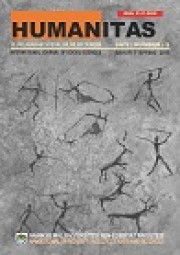LE COMBAT DE L’INDIVIDU CONTRE L’HOMME DE MASSE DANS LA PIÈCE D’EUGÈNE IONESCO: RHINOCÉROS
THE BATTLE OF THE INDIVIDUAL AGAINST THE MASSES IN THE PLAY OF EUGÈNE IONESCO CALLED RHINOCEROSES
Author(s): Ümran TürkyılmazSubject(s): Literary Texts
Published by: Namık Kemal Üniversitesi Fen-Edebiyat Fakültesi
Keywords: Eugène Ionesco; Rhinoceroses; 20th Century; the Theatre of the Absurd.
Summary/Abstract: One of the pioneer writers of the absurd theatre stream, Eugène Ionesco, describes the meaninglessness of existence and the failure of mankind in realizing himself by means of a grotesque and symbolic depiction. Eugène Ionesco exhibits the gradual capture of mankind by totalitarian regimes, which gained power prior to the Second World War, in his famous play Rhinoceroses, which is an important mile stone in his literary life. The writer questions the meaning of life and subconsciousness in his play, which he wrote in a surrealistic approach. He emphasizes the fact that people, who lived under a totalitarian regime, began to form a herd by being unable to resist continuous political pressure anymore and tragic consequences of the fact that they delivered their free will over to others. The play seems to be like a scream against barbarism that humanity had suffered from during the Nazi regime. Becoming a rhinoceros, which is perceived as an irrational image, is based upon the loss of identity of the transforming majority due to the willingness to resemble one another and to oppress other people by becoming a stronger entity. Ionesco demonstrates the situation, in which mankind is caught in between, by means of his play, which yielded a tremendous echo in its context. He criticizes the fact that society endorsed a gregarious identity and everything that turned into a hegemonical power. He focuses on hopelessness, loneliness, desperateness, fear and disappointment of mankind, who is anxious about adapting oneself to time with respect to life. Eugène Ionesco makes use of irony and satire of the lack of resistance in France to violence whilst being under German occupation, in his play through which he confronts people with their basic problems. The author, who opposes all kinds of fanaticism and despotism, underlines the importance for mankind to determine their destiny by exerting their own free will, without surrender to any authority. He states that people, who revolt against oppression and violence, should never give up on their unconditional love and honour. By means of a text-based methodology, we try, in this study, to analyse the denial of principles of a society that turns into a crowd full of rhinoceroses as a result of metamorphosis.
Journal: Humanitas - Uluslararası Sosyal Bilimler Dergisi
- Issue Year: 3/2015
- Issue No: 05
- Page Range: 217-228
- Page Count: 11

